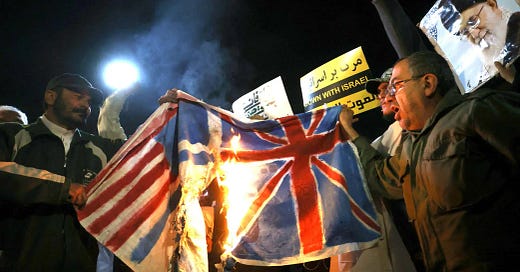Nostalgia
Newly-appointed French Prime Minister Gabriel Attal, The United States and the United Kingdom launched strikes on Yemen
UPDATED: Macron is relying on Attal to rejuvenate his government, in part, with an appeal to a younger demographic of voters who have become disillusioned, notably ahead of crucial EU parliamentary elections in June.
The U.S. and British militaries bombed more than a dozen sites used by the Iranian-backed Houthis in Yemen on Thursday, in a massive retal…






